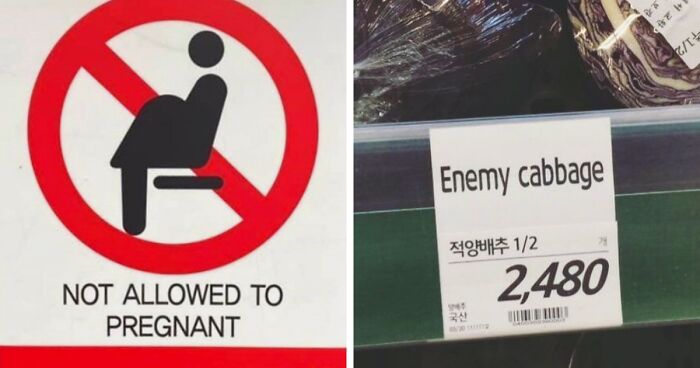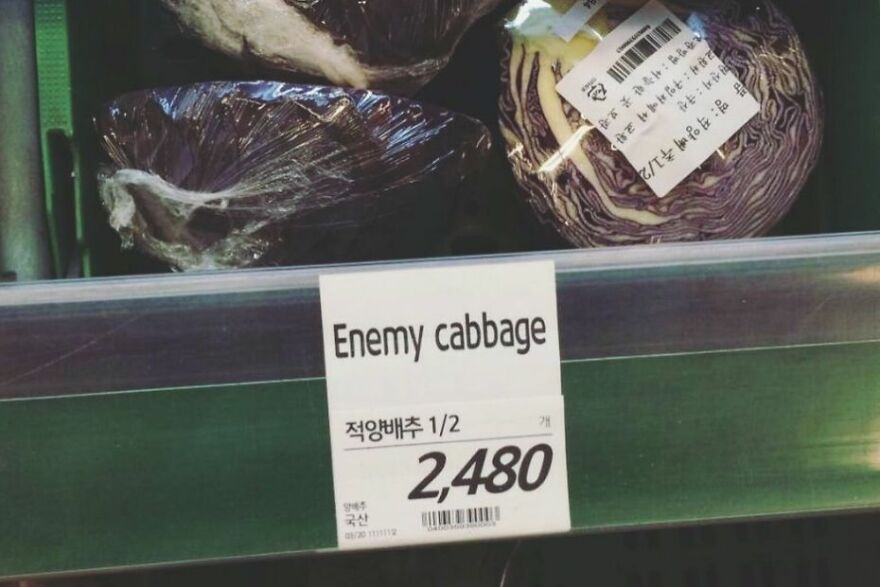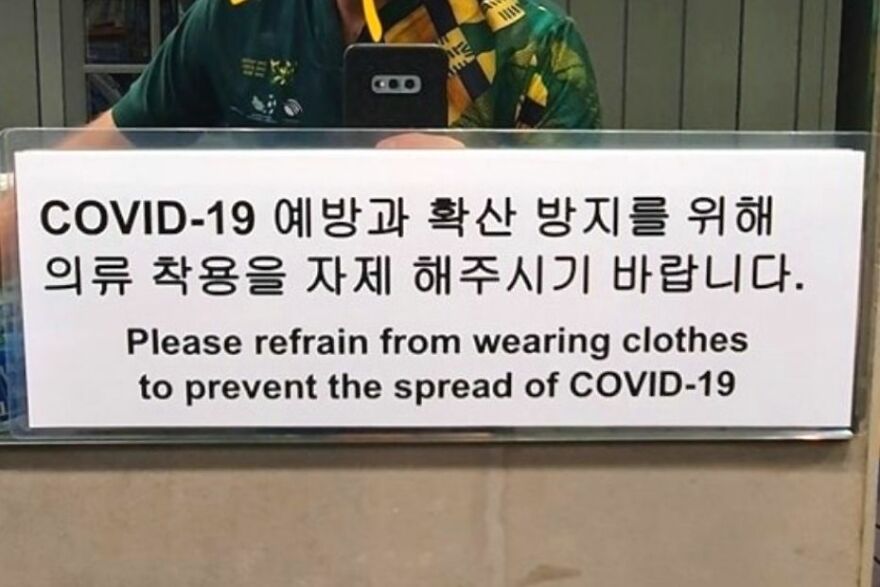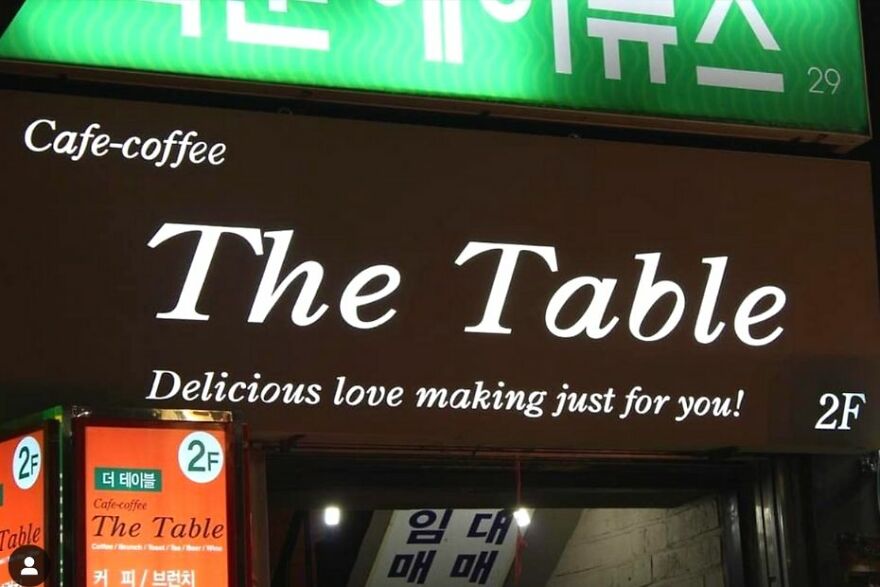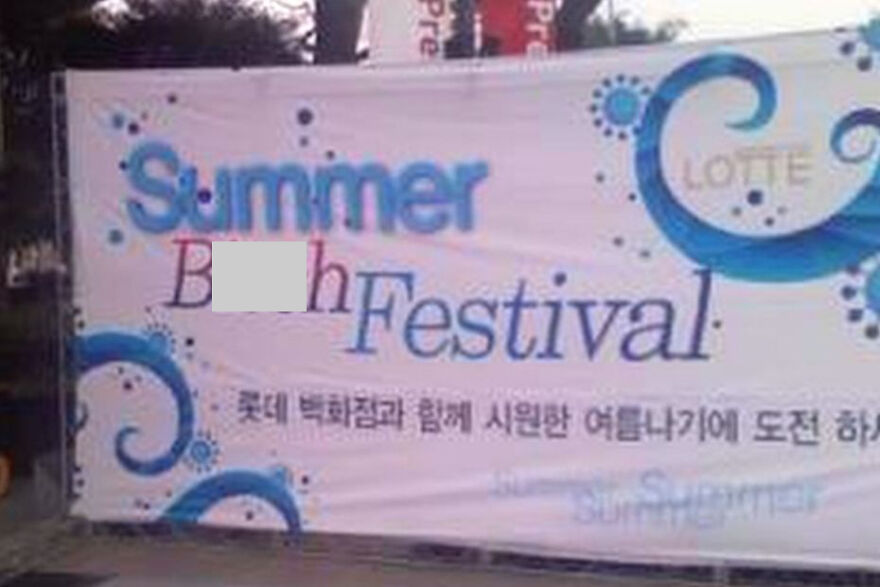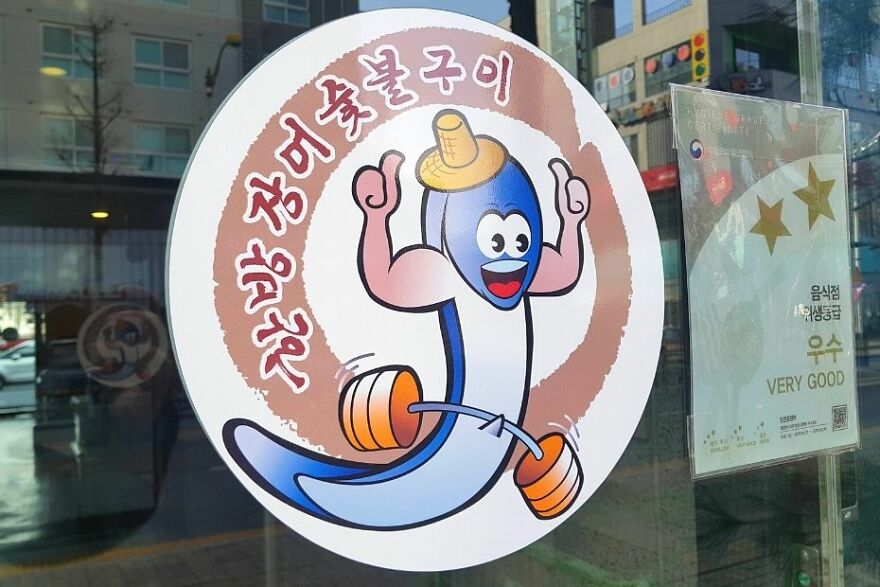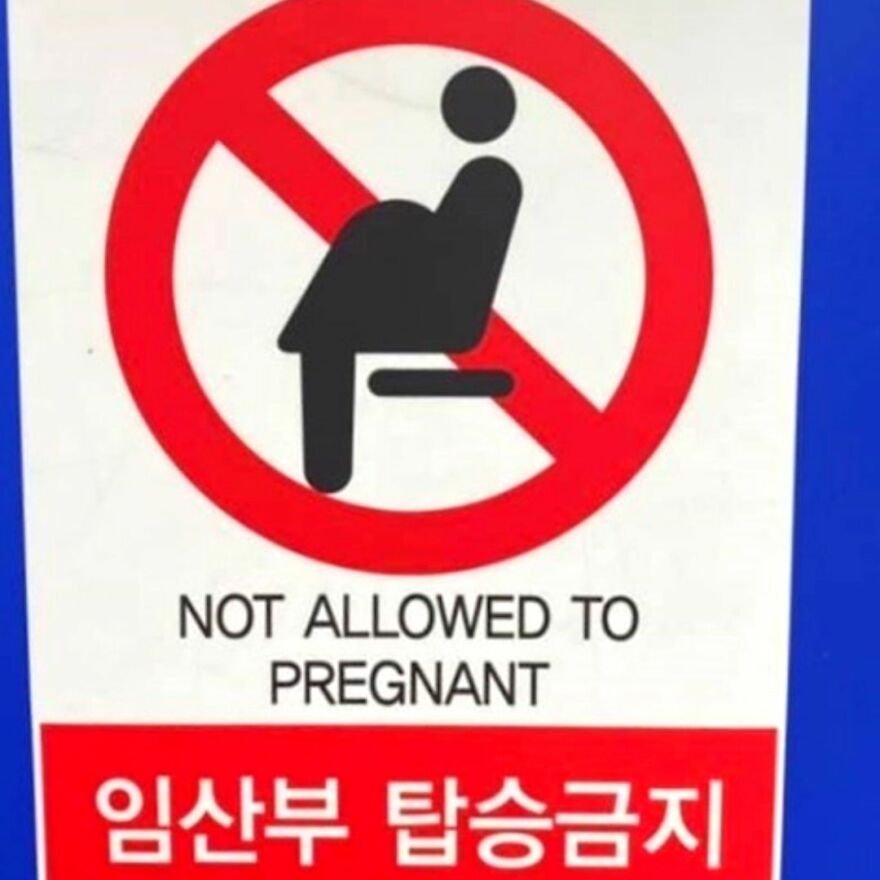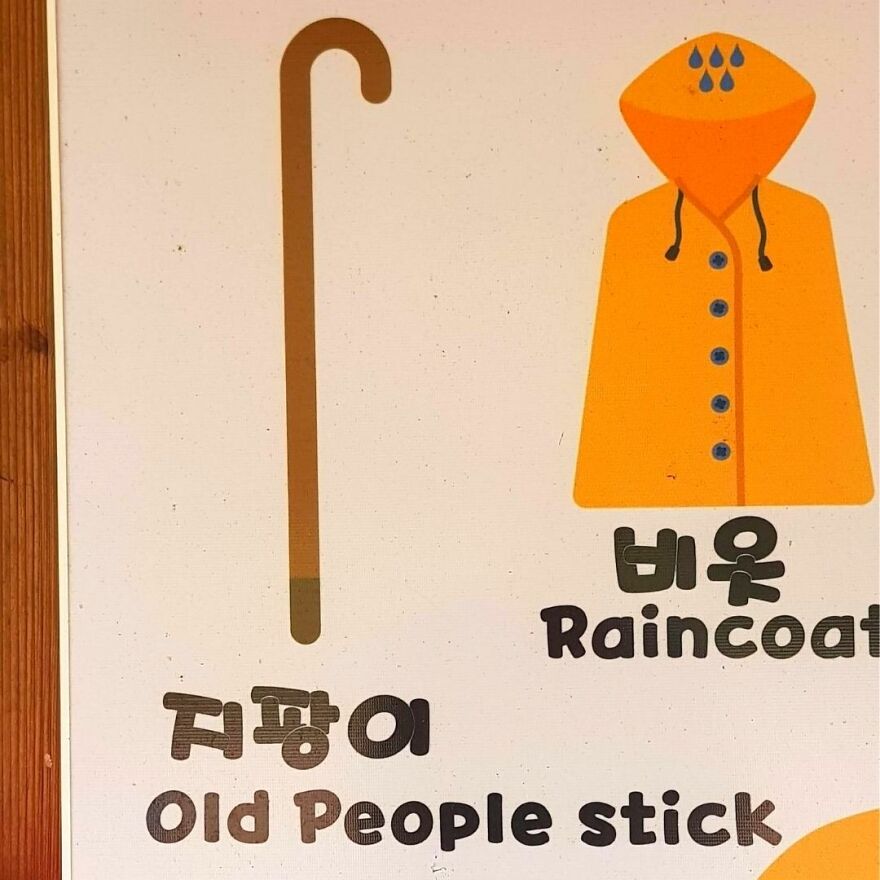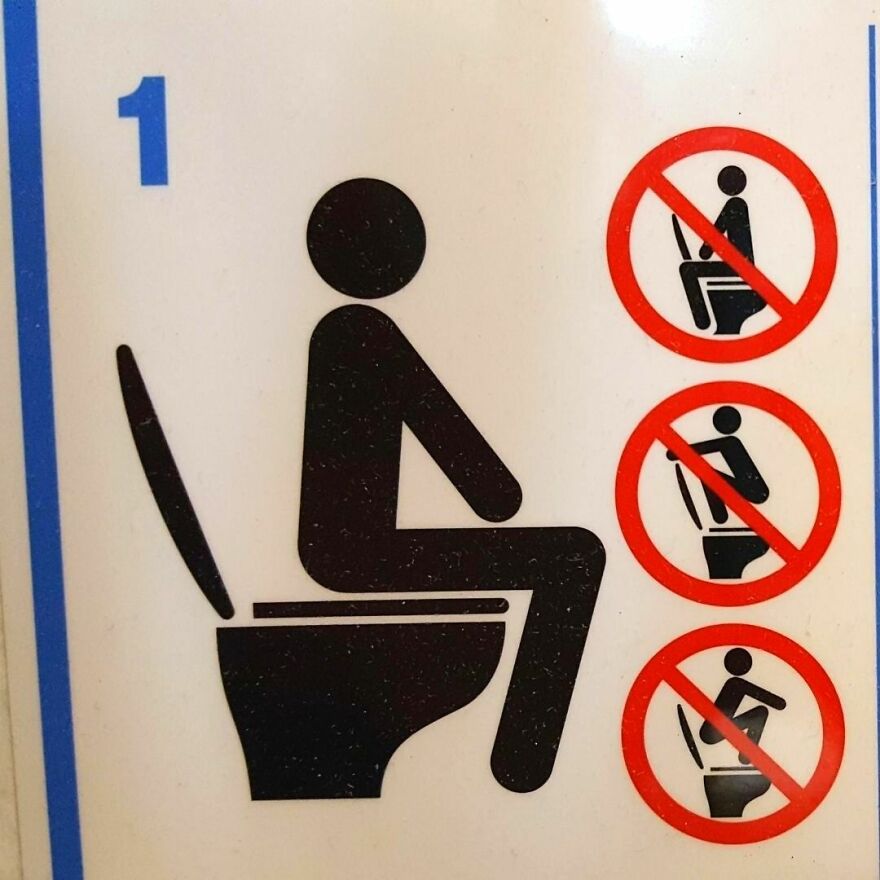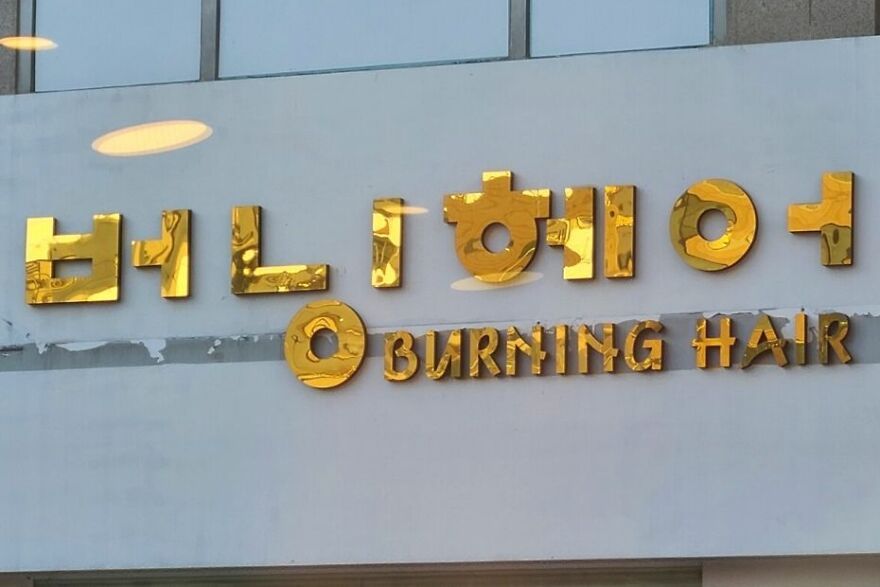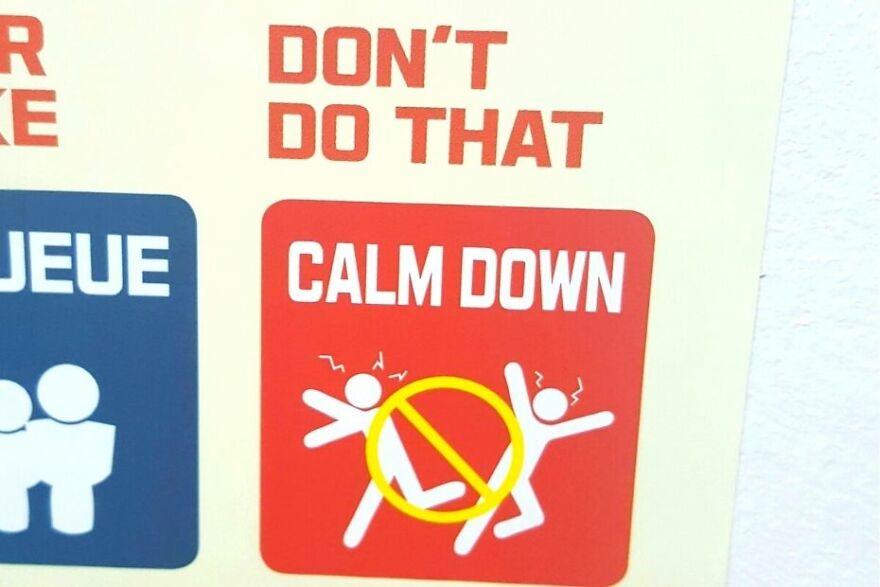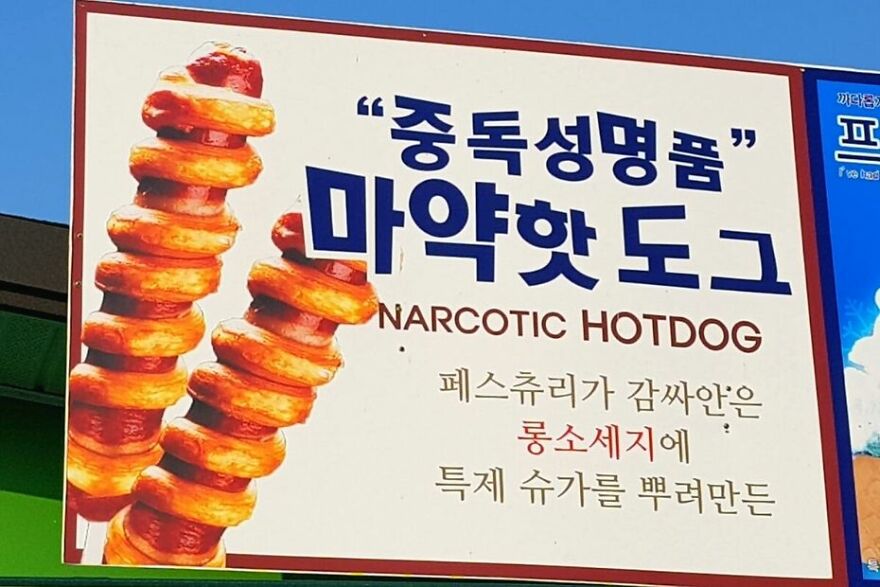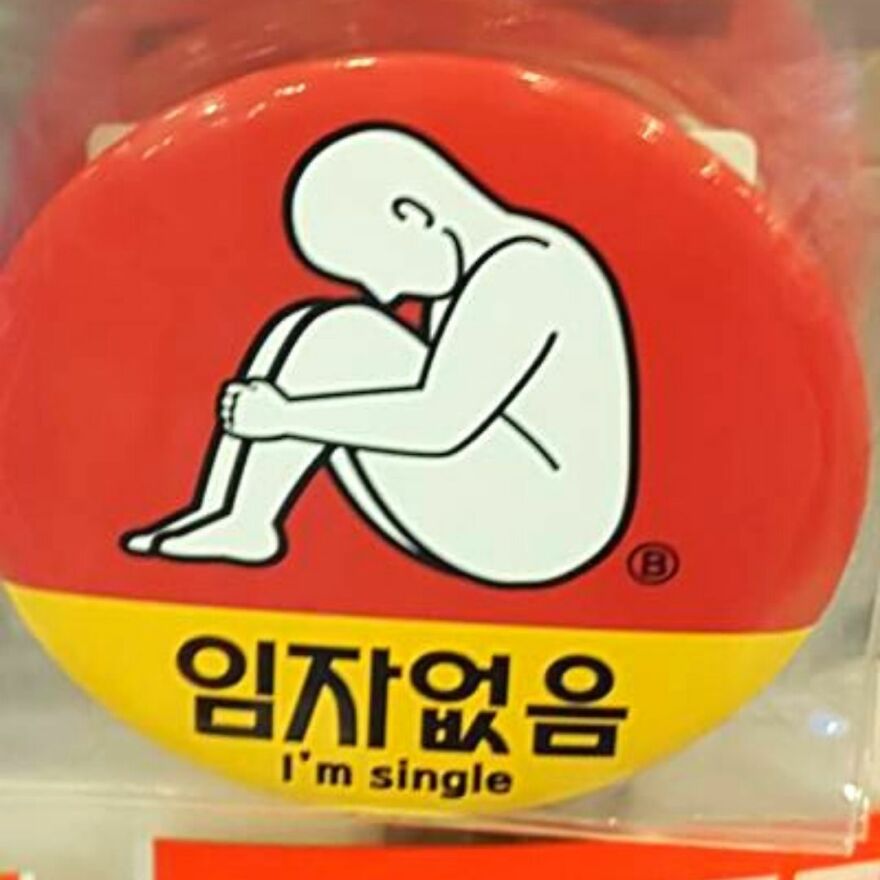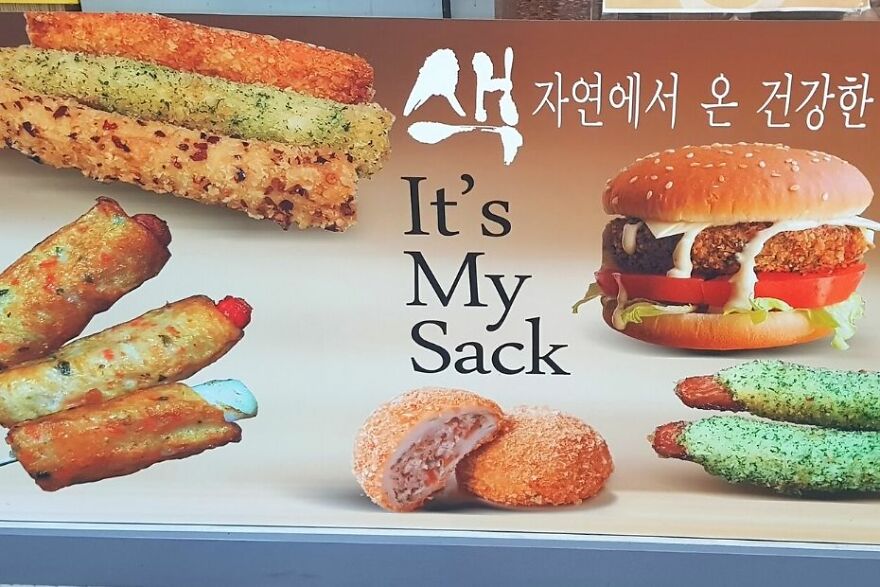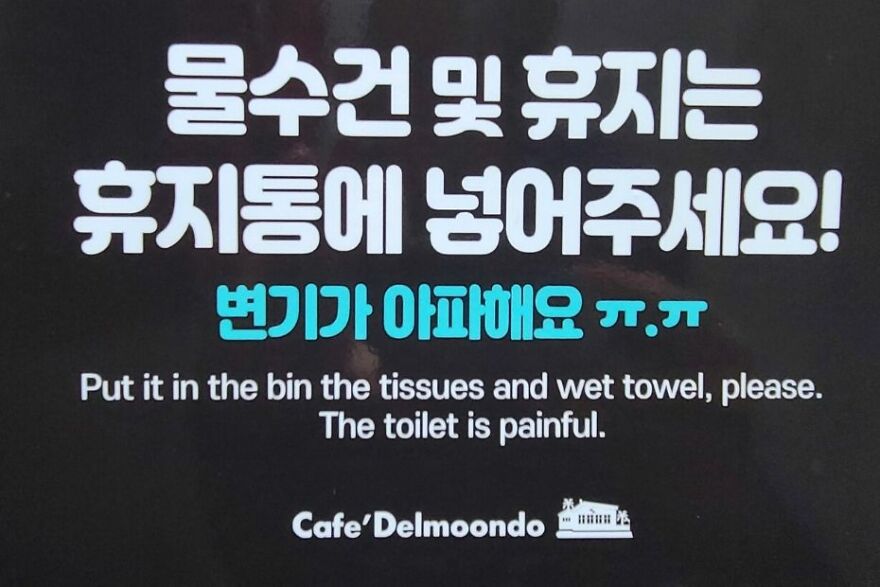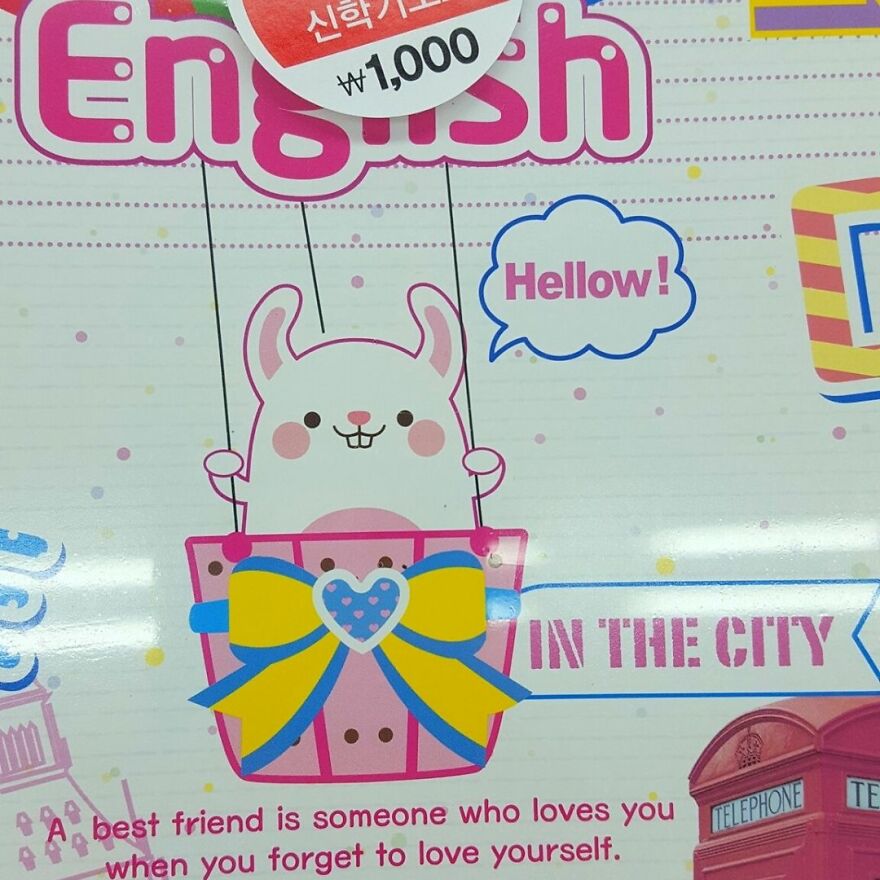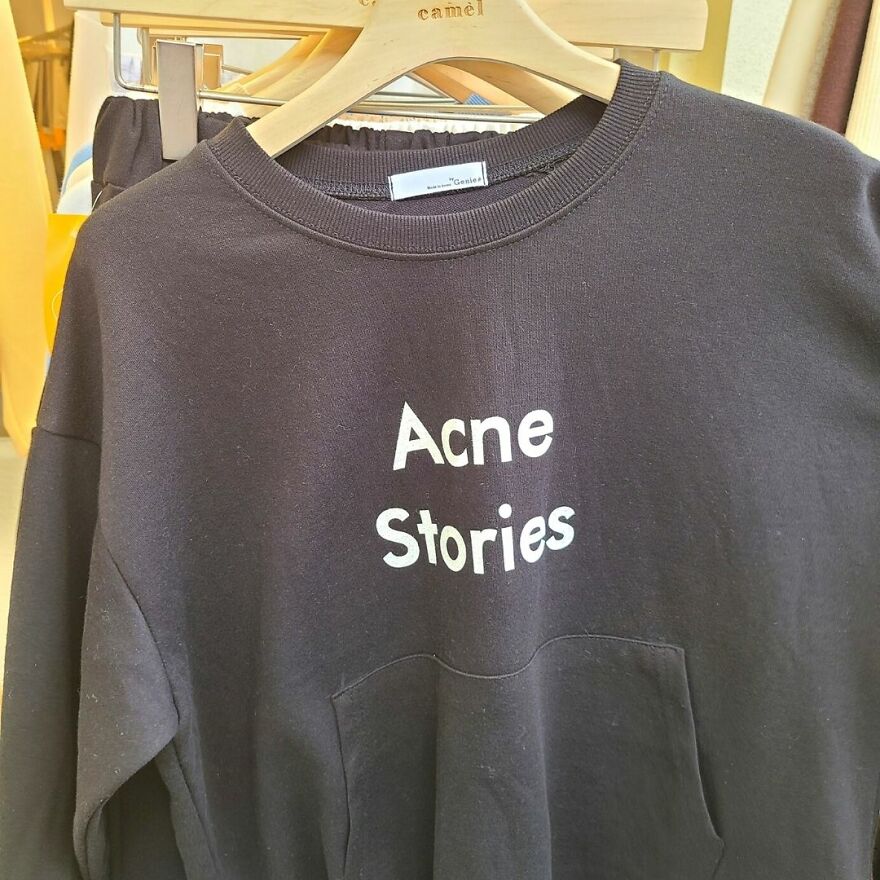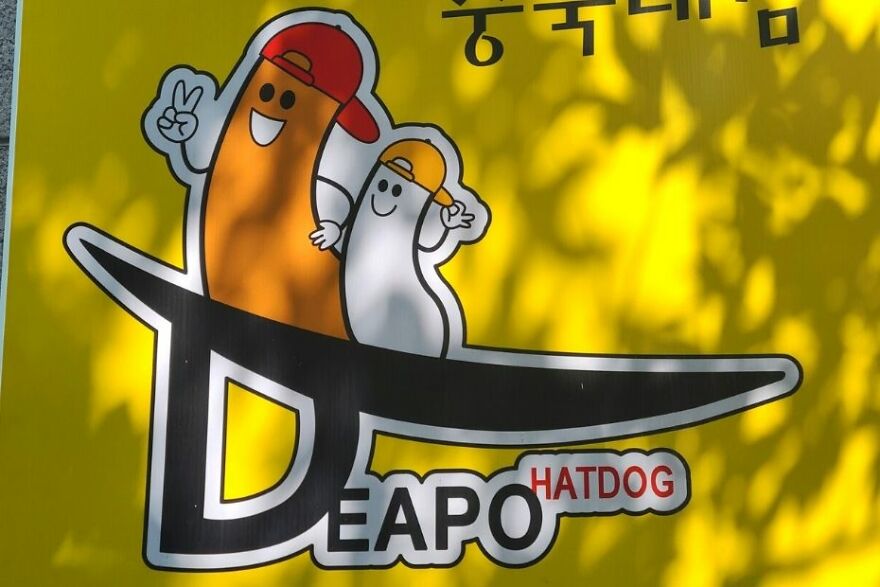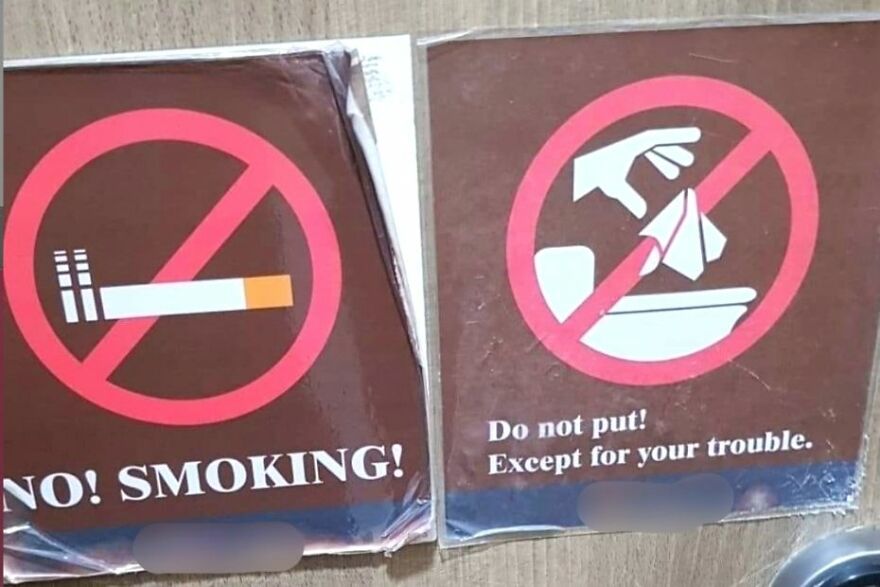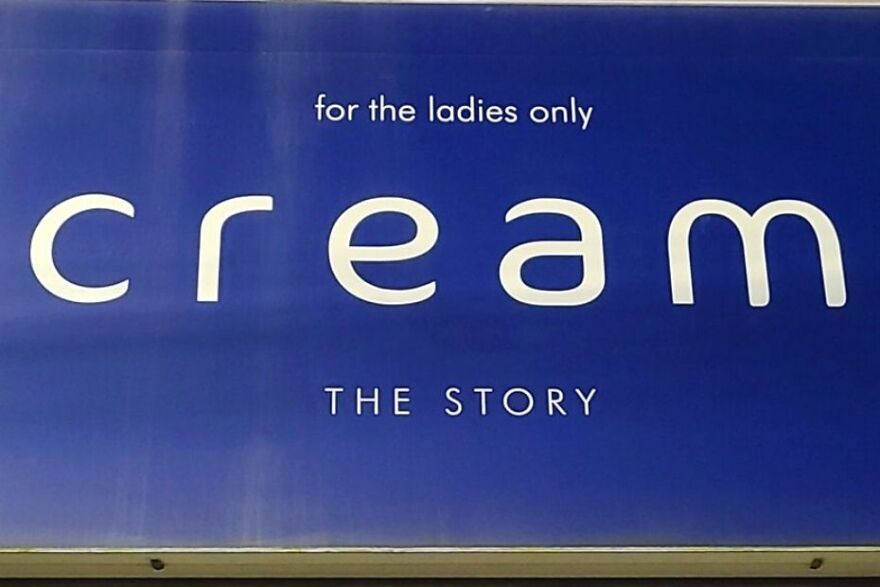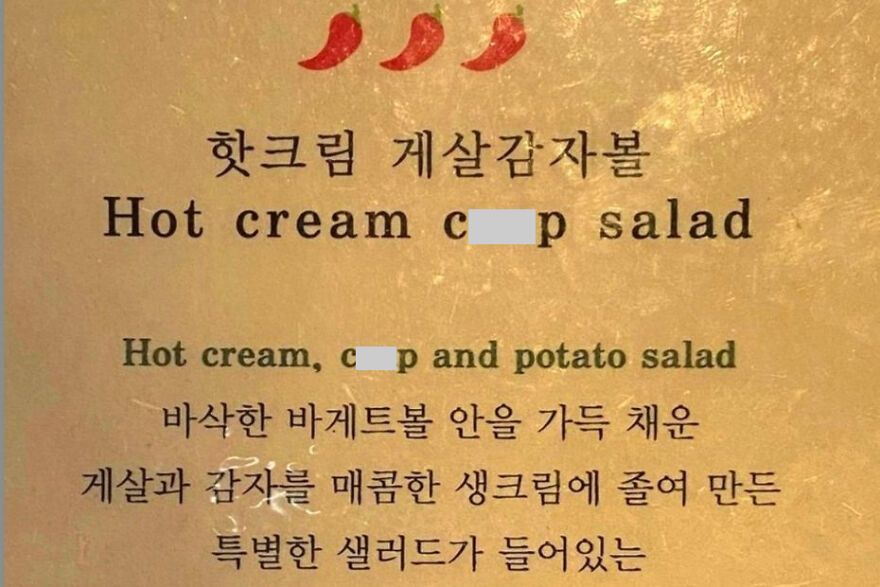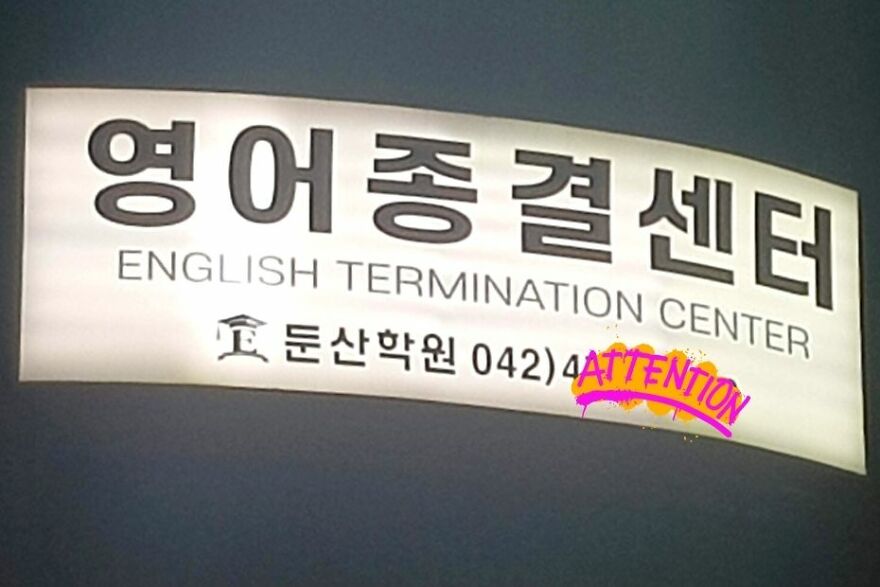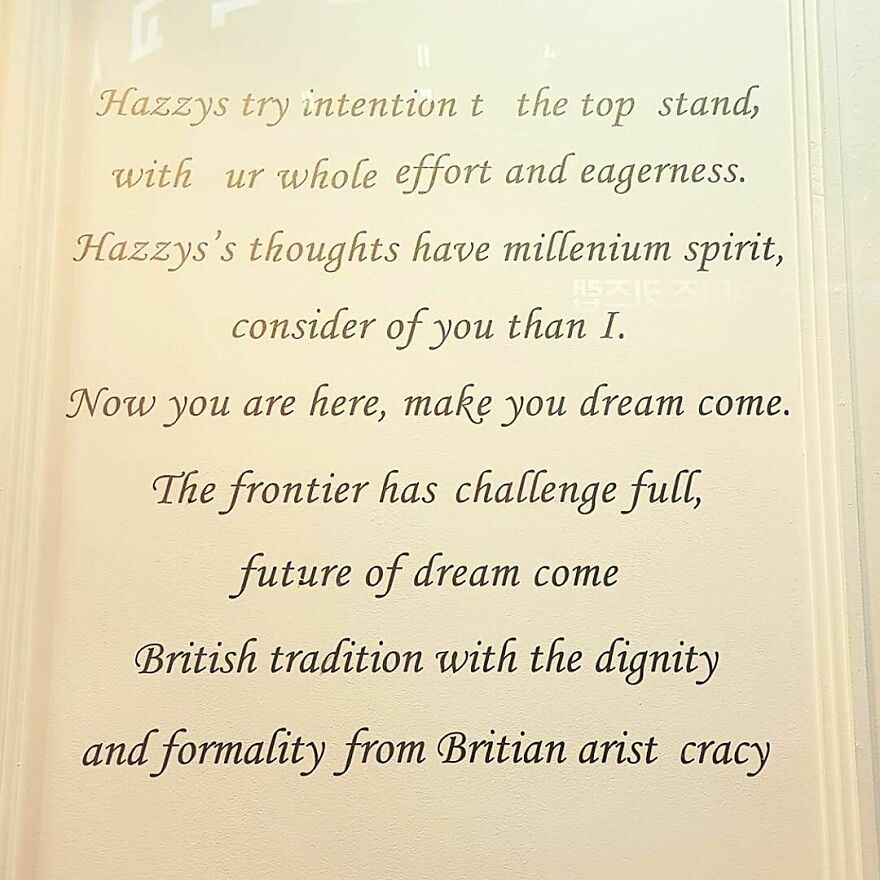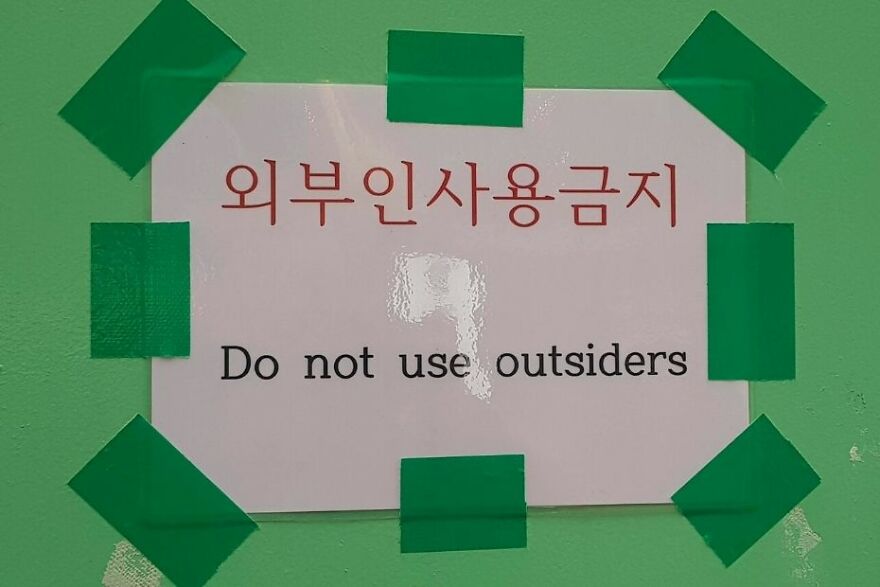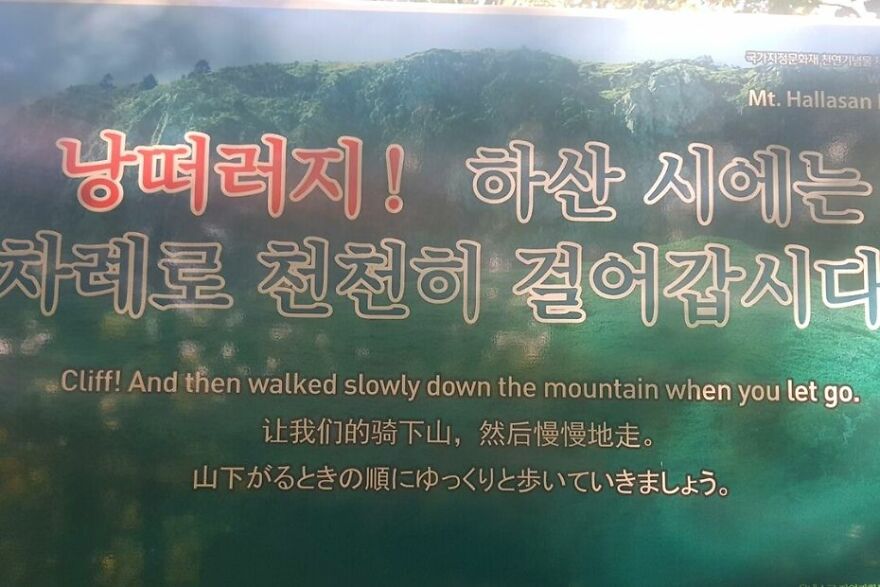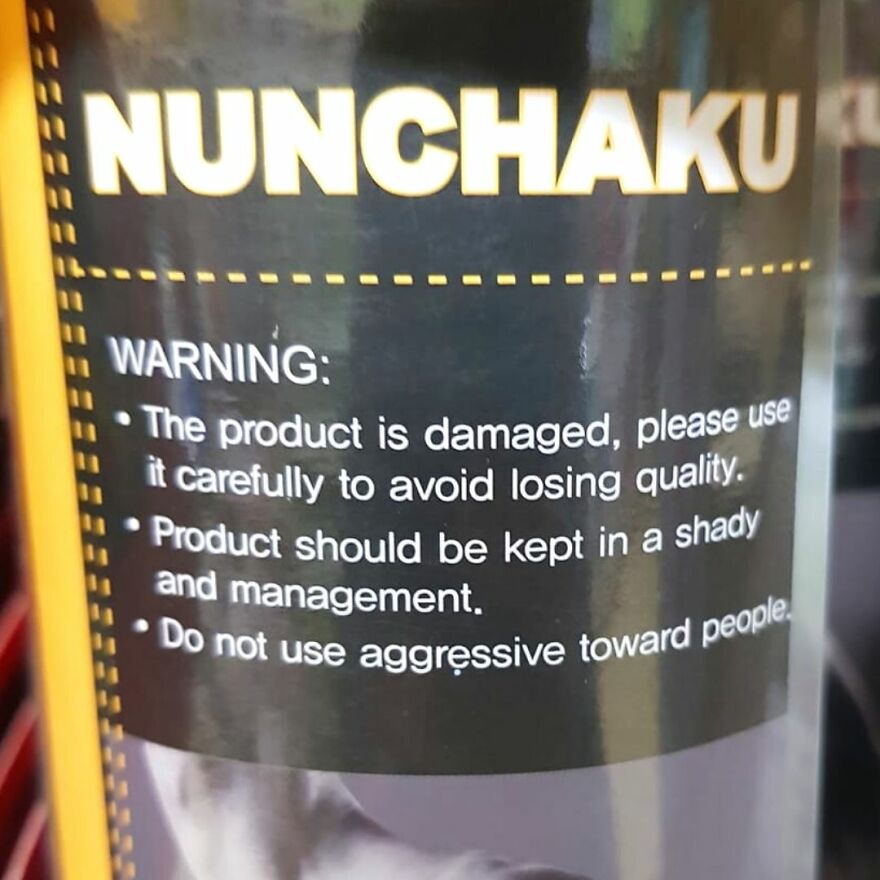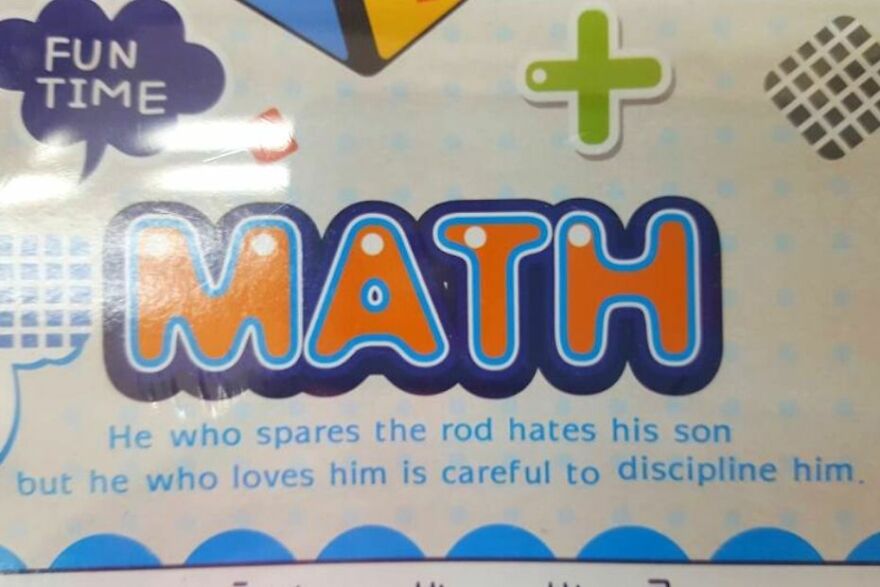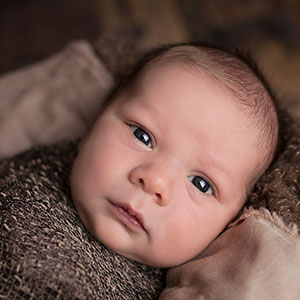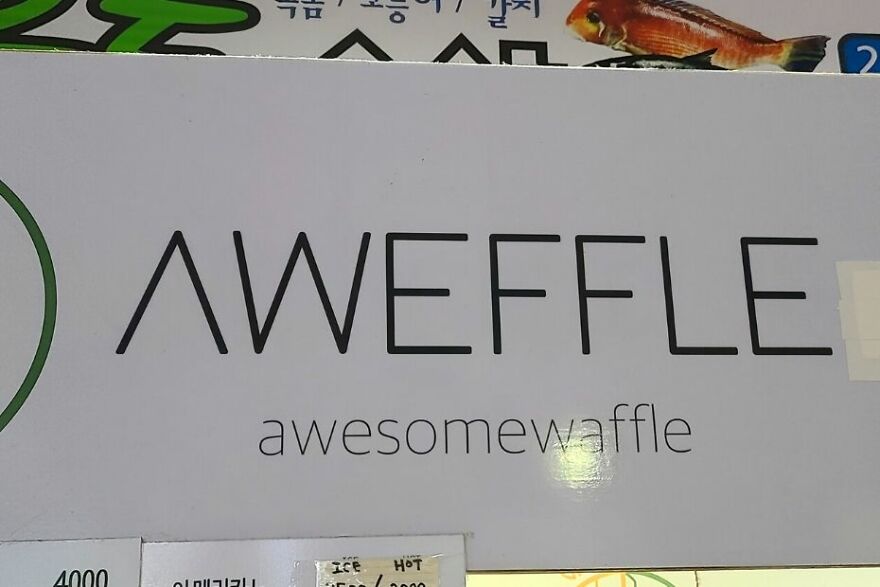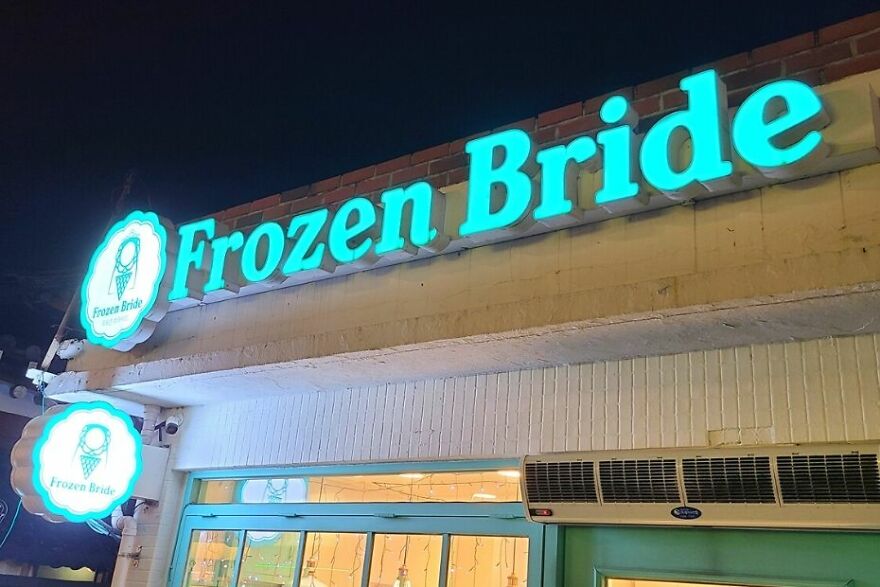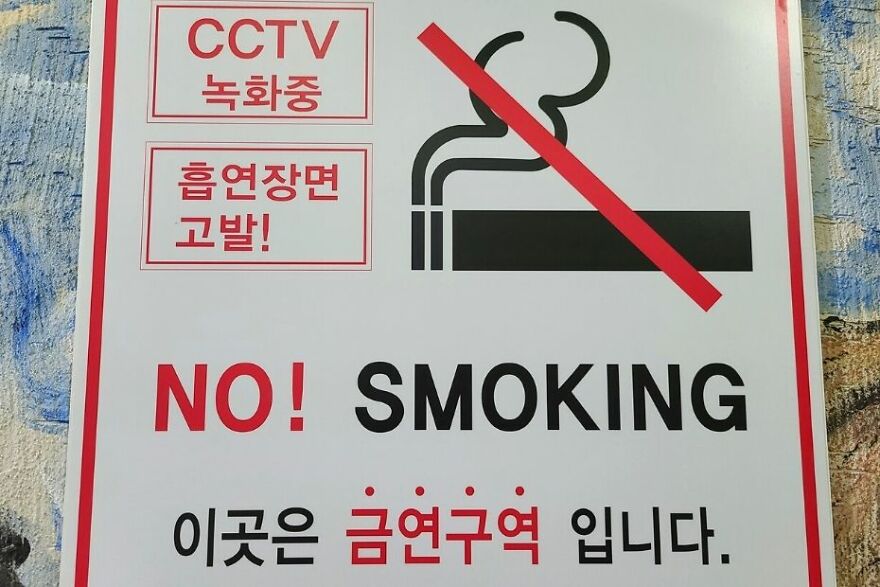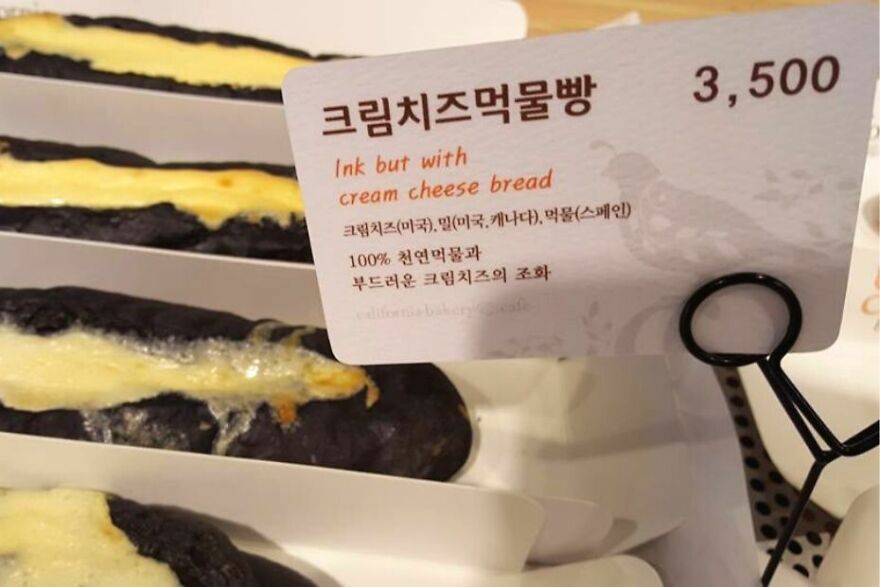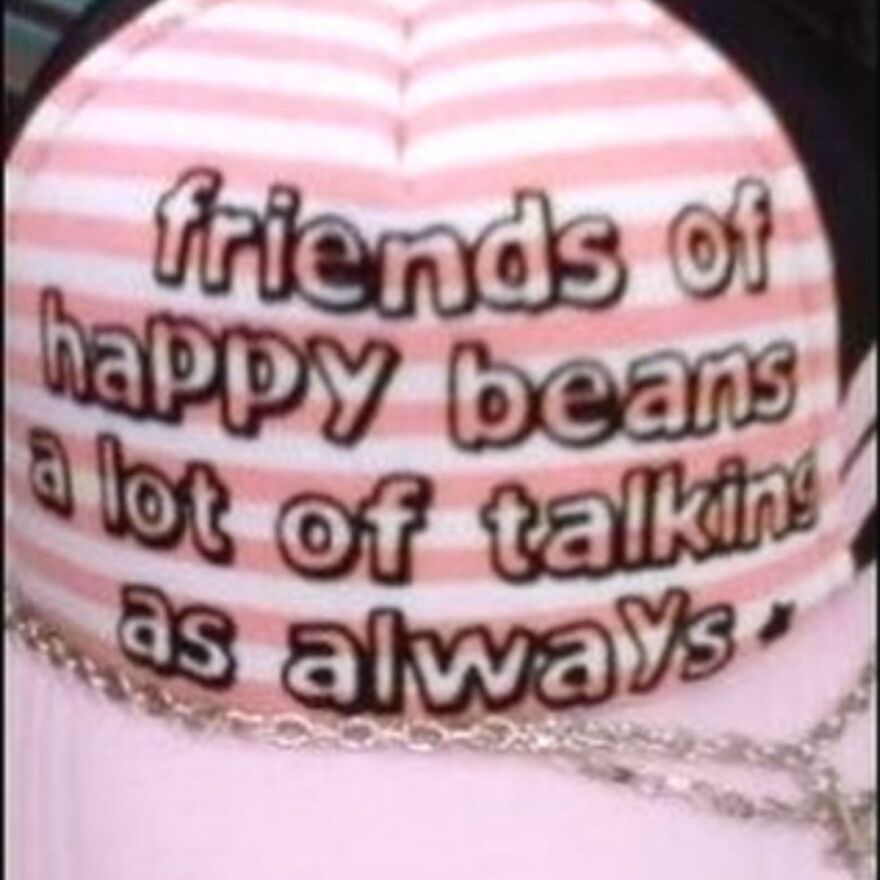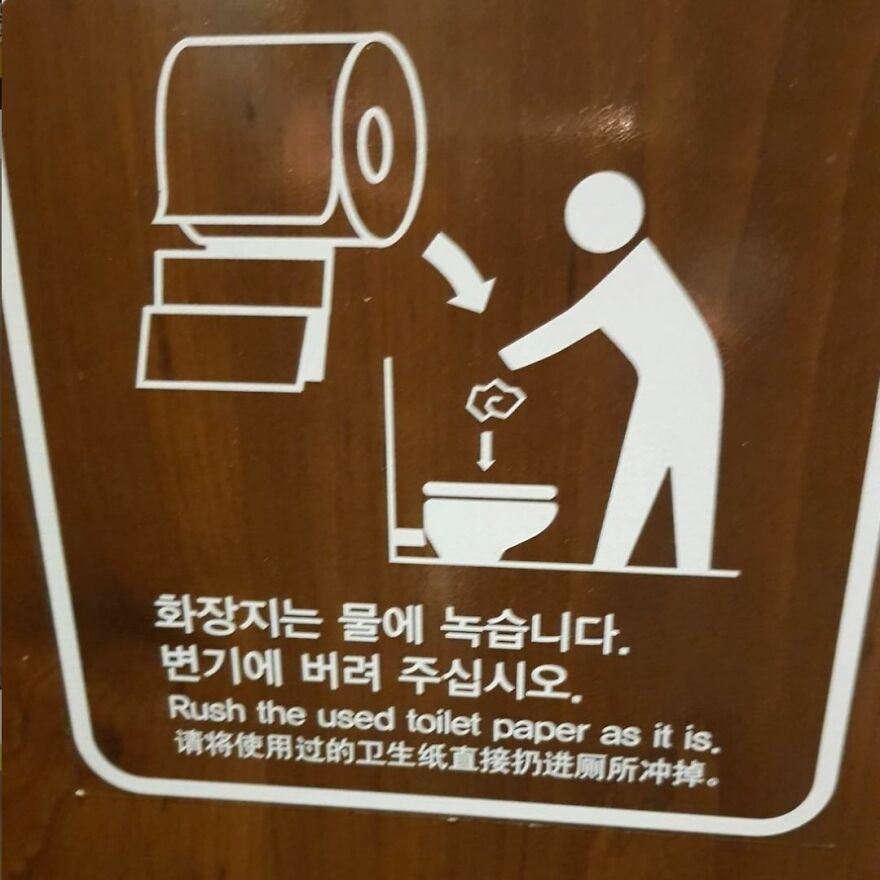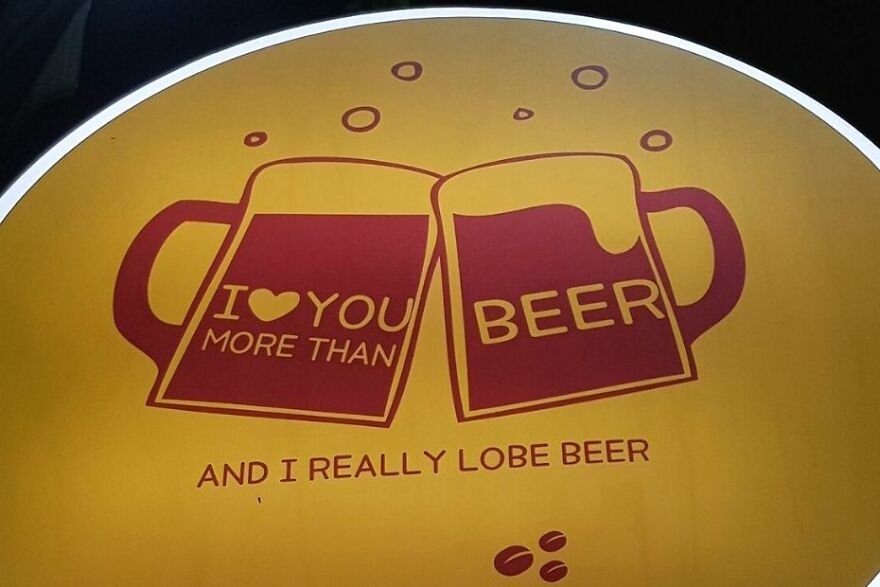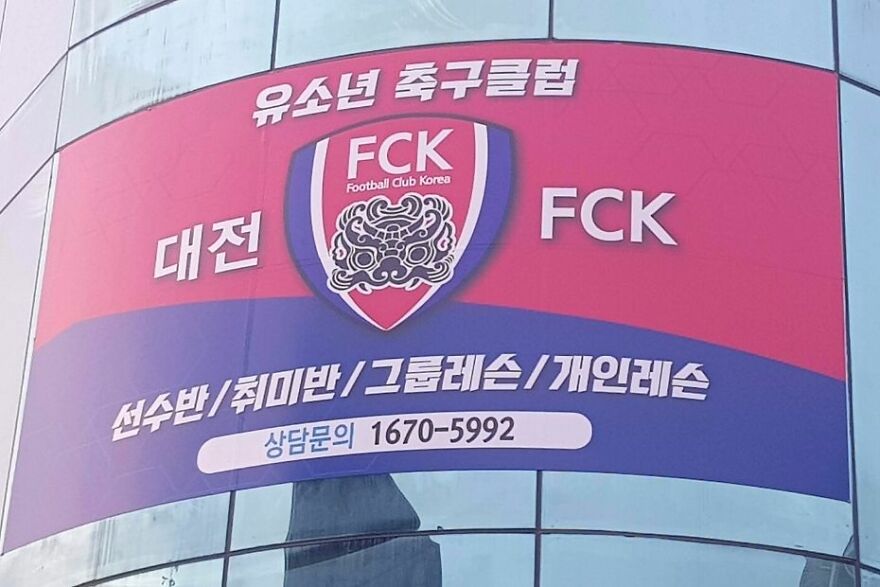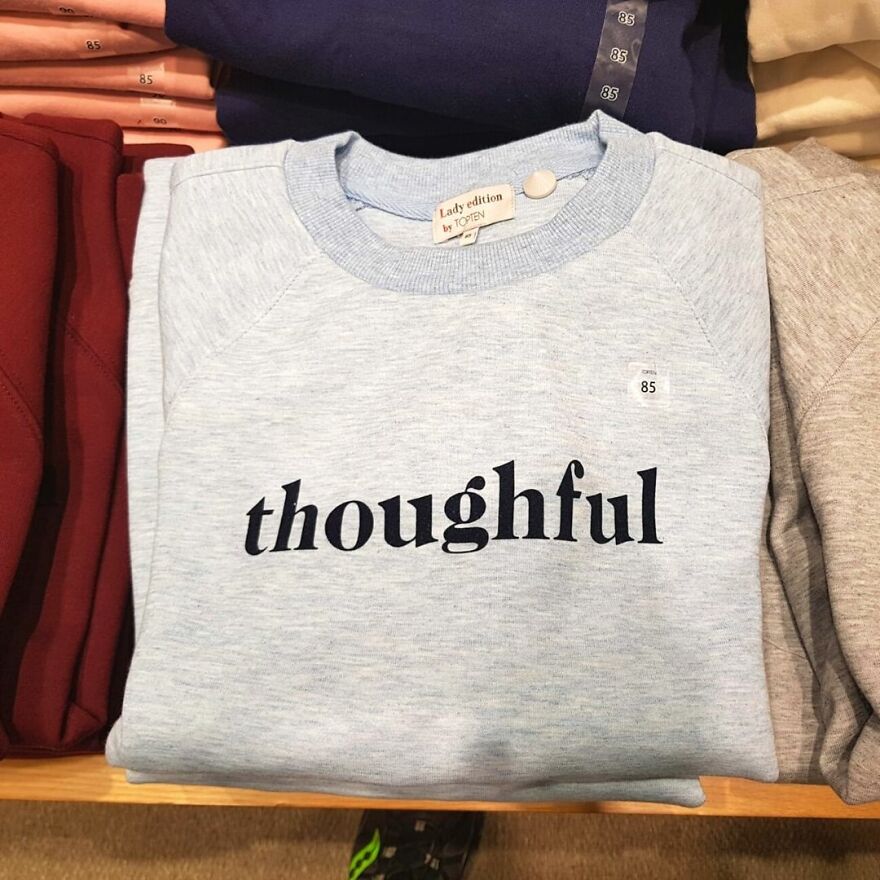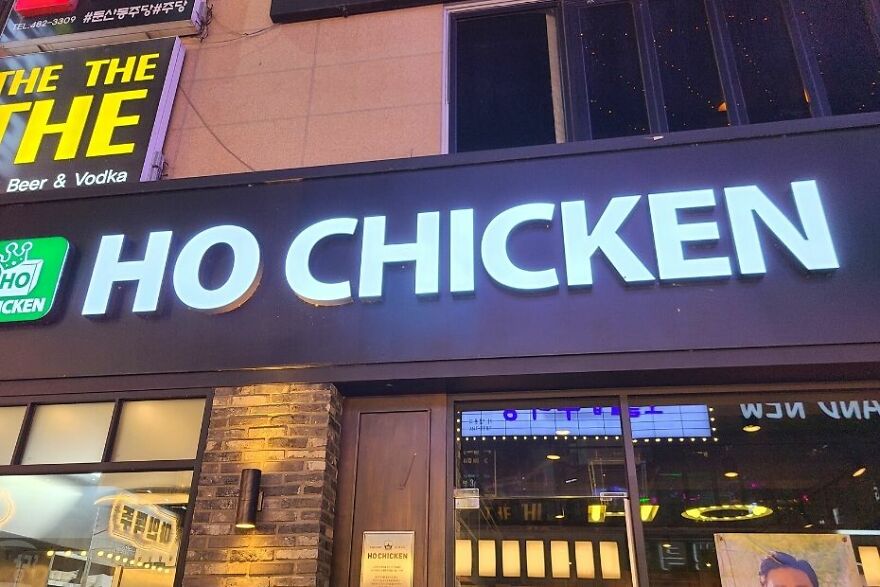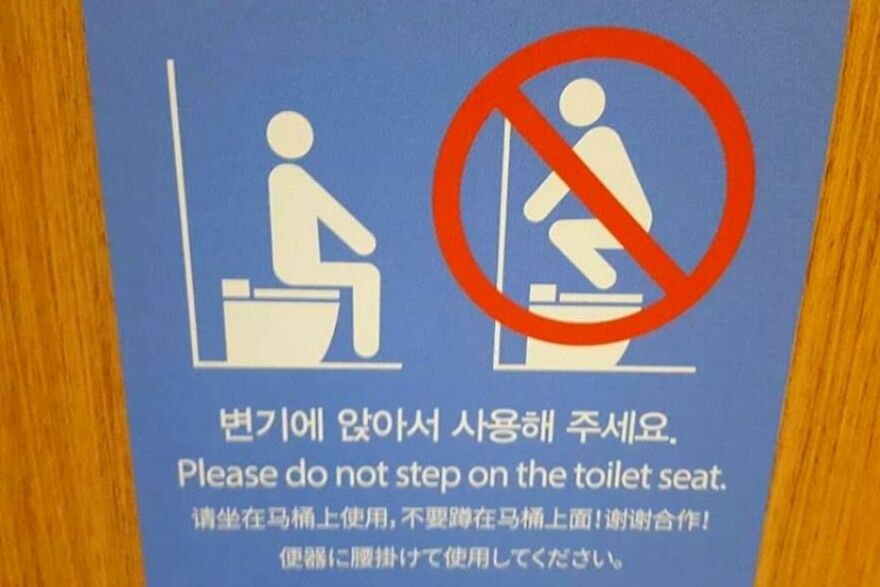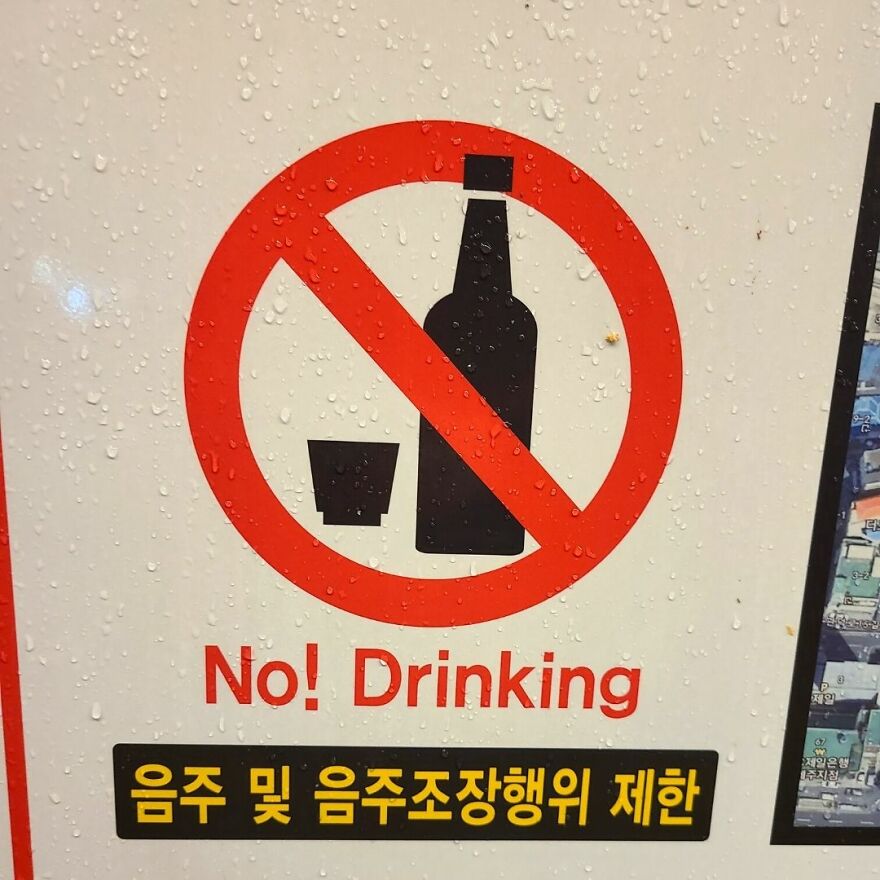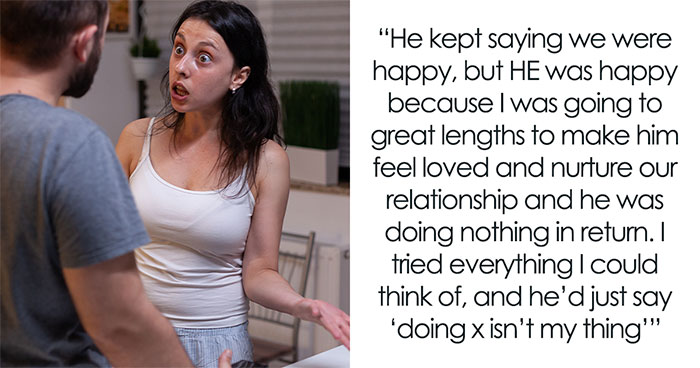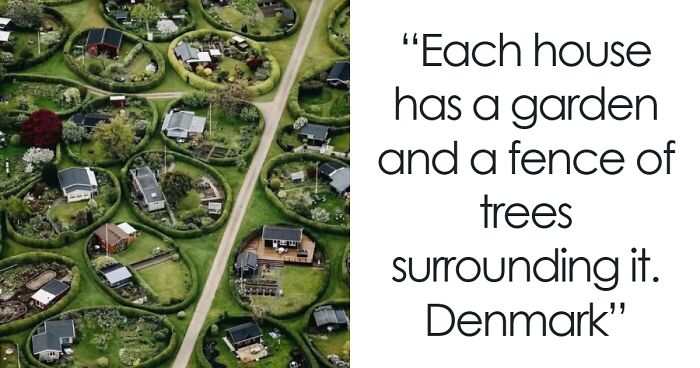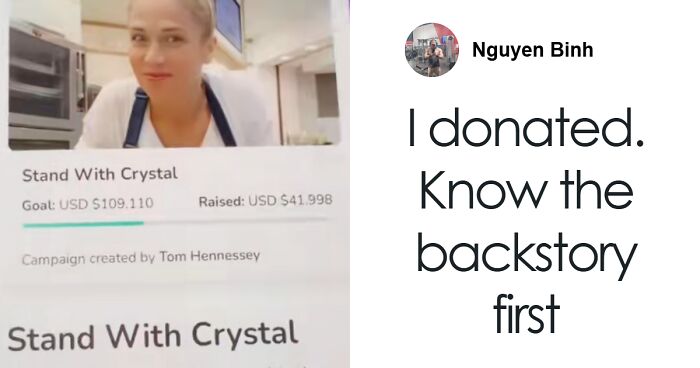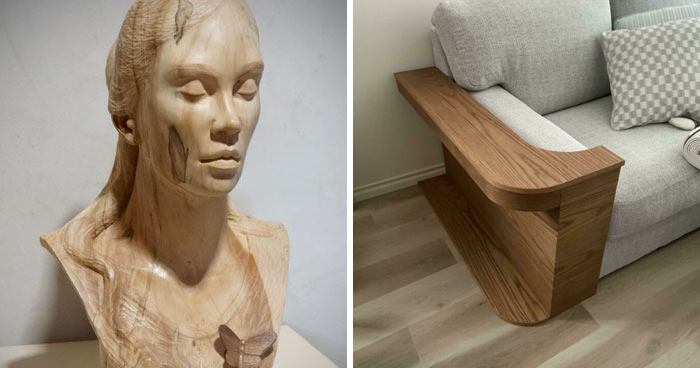I love living as an expat in Korea. Everywhere you go, there's something beautiful to feast your eyes on, or delicious to indulge in, or fascinating to learn about. And there are hundreds of funny signs to make you giggle as you walk around and explore the Land of Morning Calm, as Korea is also known.
I want to share some of the funniest, strangest, or even rudest Konglish signs I've seen during my travels in Korea, a place I've called home since 2015, and write about in my blog.
More info: inmykorea.com
This post may include affiliate links.
I Will Find You And I Will Put You In A Salad!
This is why you shouldn't use a translation app for writing English signs! The word for red and enemy are similar in Korean and instead of a red cabbage, you get this.
Even though Korea uses a completely different language and alphabet than English, it's not that hard to live, work, and travel here. Actually, there's a lot of English in Korea. Public transport has English announcements and signs. Restaurants often have English menus. Signposts and maps have English directions and names on them. Even Korea's biggest groups are singing in English these days! That makes it really easy to live and travel in Korea.
Let's Get Naked To End Covid-19!
If you sneeze on your clothes, they could spread corona, so maybe being naked is the best way to walk around safely?
The Table Is The Best Place For Delicious Love Making. Just For You
I think this cafe meant to say that they will make delicious love (romantic meals?) just for you, but love making is something they probably weren't intending to offer.
There's a growing number of English speakers in Korea and a lot of Koreans are eager to practice English. I sometimes get random strangers to work up enough courage to ask me a few questions and start a conversation in English. I really appreciate their effort to learn my language and I'm doing my best to learn theirs, too.
You Don't Have To Be A B***h This Summer, But There's A Festival For You If You Are
Beach and b***h are written the same in Korea and they sound the same... It's funny to see that even Korean mega-corporations like Lotte can't avoid Konglish mistakes.
This Eel Is Really Good At Lifting Weights. That's What Happens When You Eat Here
Yes, eating eel will help you be strong in a certain area, guys.
You might not know it, but Korea is a country that has fully embraced English and mixed it in with its own language. There are hundreds of loan words from English used in Korean that make it a lot easier to live in Korea as an expat. I can drink "ko-pi" (coffee), eat "ke-ki" (cake), and watch "ti-bi" (TV) in my "a-pa-tu" (apartment) whilst using my "su-ma-tu-pon" (smartphone).
No Wonder The Birth Rate In Korea Is So Low
Do You Need An Old People Stick?
English is also a mandatory subject all the way till the end of high school and even at university students still learn some English. I should know, as I teach them it. Unfortunately, this doesn't mean that everyone knows how to speak English and use English correctly. This leads to a lot of 'Konglish' mistakes. Konglish is a mix of Korean and English and is used to describe those happy moments of confusion for English speakers when trying to decipher Korean signs, images, or slogans. From the summer b***h (beach) festival to delicious c**p (crab) salad, there are so many funny ways that the earnest efforts of Korean sign-writers, shop owners, and poster makers end up with the wrong outcome.
I Was Really Confused Until I Learned How To Use A Toilet Correctly
Another useful guide to using a toilet in Korea. So many wrong ways to do it!
What Else Would You Do At A Hair Stylists Except Set Your Hair On Fire?
This would make me really worried about getting my hair styled here.
One common cause of Konglish comes from a lack of letters in the Korean alphabet. There are several English letters not in the Korean alphabet, including f, v, and z. Some letters are also confusing as they have very similar sounds, such as b/p, l/r, and g/k. This turns crab into c**p and hello into herro.
When In Danger, Make Sure Not To Calm Down!
These Hotdogs Are Addictive!
Narcotic, maniac, and holic are commonly used in Konglish signs to mean something is addictive or really desirable. He's a check maniac/holic (he loves chicken). This hotdog is narcotic (it's addictive).
The most common cause of Konglish mistakes is sadly due to a lack of care to check the mistranslations or too much reliance on not-yet-perfect translation apps. Korean words are based on groups of syllables and those syllables can have many meanings. This leads to some unusual Konglish translations, such as "enemy cabbage" instead of "red cabbage". Other times English seems to have been written almost randomly, with no real thought for what the sign says at all, leading to a random stream of words that have very little real meaning. It's kind of artistic, but also very confusing if you need to actually understand the translation.
It's Ok, I'm Fine Being Single. Honestly
Don't Touch This Guy's Sack Or You Won't Get His Snacks
The name of this shop is "saek" in Korean, and they want to show what they sell. Unfortunately, their translation sounds like they're a bit possessive about a sack.
If you want to find Konglish signs, the most common places are toilets (they really want foreigners to understand Korean toilet culture), clothes shops (fashion fails are strong in Korea), cafes and restaurants (so many bad menu translations), and in stationery stores. When you travel to Korea, look out for any funny signs and see if you can work out what the Konglish means.
The Toilet Is Painful, So You Should Probably Not Use It?
Another toilet sign with a weird Konglish translation. I'm not sure what's painful about the toilet, but it might make you want to avoid using it.
Here the Korean says the "toilet is in pain/is hurting". It seems Koreans have trouble distinguishing noun and verb forms of the same word.
The Irony Of This English Work Book. Hellow!
The easiest English word that people learn first, but it was apparently too much for the designer of this English workbook.
Most English speakers in Korea get so used to seeing these translation fails that you sometimes end up not even noticing them. I don't think many people get angry unless it's something really important that hasn't been translated well and ends up putting you in danger. Most of the time they're pretty harmless, sometimes they're hilarious, which is a good thing as it brightens up your day.
There are so many signs saying “Grand Open” (not opening) or “1th Anniversary” (not 1st) that foreigners just shake their heads and get on with their day. At least half of the shops in Korea have “close” signs (not closed) and there's really no escaping Konglish.
Story Of My Life!
Embracing Konglish By Making It Into Your Logo. Delicious Hatdogs Here
This shop actually embraces Konglish. Hotdogs are pronounced hat-dog in Korean and this shop decided to put hats on its hotdogs as a joke.
If there's a really funny Konglish sign that appears in a popular place, it'll definitely get shared all over social media by Korean expats. Facebook groups like Every Expat In Korea is a good place to find some of these pictures. The Summer B***h Festival was a classic example that still comes up from time to time on expat groups.
These Konglish fails don't get shared on Korean media, probably because it's a bit embarrassing for people and they don't want to discourage people from using English. On social media, however, you can find them posted by influencers or people's personal accounts quite often.
City-based Facebook groups usually share local Konglish mistakes. Recently, a large department store in my city (Daejeon) posted a big sign advertising their "42th year" sale. Some expats shared pictures of it (including me) and within a couple of days the sign was taken down and changed. Sadly, most don't get corrected and the same mistakes keep popping up... but that's great for people like me who love to share them with everyone else.
Only Put Your Troubles Into The Toilet, Not Toilet Paper?
In Korea, a lot of older toilets don't have good plumbing, so you're meant to put your toilet paper in a bin, not in the toilet. I guess your troubles were what you deposited after lunch?
A Creamy Story That's Only For Ladies
Seen on a ladies clothes store. For the dirty minded, this might be funny.
I lived in Japan for 3 years before coming to Korea and saw a lot of hilarious English signs there, too. Japanese and Korean share similar problems when translating into English, such as the confusion between R and L in both countries. I saw a shop called "Eye Rashes" (not lashes) in Japan, which sounds painful! The grammar structure is very similar in both languages, which is backward from English, so that causes a lot of weird sentences and translation mistakes. There's a kid's clothing chain called 'Starvations' in Japan, which is a really weird name for children's clothing. Japan is another great place for spotting these kinds of signs and I wish I'd taken more pictures of them when I lived there.
Not Sure I'd Want To Order This In A Restaurant.
There's little difference between b/p in Korean, but a big difference between crab and c**p!
I'll Be Back... To Terminate Some English Here
I'm British, But I Have No Idea What This Is About
Outsiders Don't Like To Be Used, So Please Don't Use Them
Some Mountain Poetry For When You're Out Hiking In Korea
More random punctuation! Not a very useful warning sign, it actually sounds like a poem.
Don't Use These Nunchaku Aggressively, Keep Them In A Shady Instead To Avoid Losing Quality
Nothing Like A Bit Of Fun Time With Math! But Never Spare The Rod
From the same series as the 'hellow' English workbook, this math workbook has random phrases on it to make it look more 'international'. It just looks odd to English speakers though.
What An Aweffle Name For A Waffle Shop!
Awesome + Waffle does not = a good shop name.
Probably Not A Good Start To The Honeymoon
I assume the owner of this ice cream shop thinks that this is a cute name - a bride of ice cream - but it just sounds creepy in English.
No! Perhaps It's Ok To Smoke Here?
A common problem in Korea when writing English signs is knowing when to use! punctuation. It really changes the meaning of the sign!
I Was Sold At Ink, But Not Sure About The Cream Cheese Bread
Those Chatty Beans Are Always Friendly.
There is a saying that someone is 'full of beans', maybe it alludes to that?
Don't Take Your Time To Fold It Up, Just Put That Toilet Paper Straight Into The Toilet
I Lobe You, Beer. I Really Lobe You!
A common mistake in Korea as there is no letter 'v' in the Korean alphabet.
Oh Football Club Korea It!
I'm Feeling Very Thoughful Today. So Thoughful
What Kind Of Chicken Do They Serve Here?
Ho is actually a surname, so it might be someone with the surname 'Ho' running the restaurant or must have established the restaurant.
Learn How To Use The Toilet Correctly
This sign is really helpful for those who didn't grow up with seated toilets. But I wonder how many people have actually jumped on top like this?
No! Let's Get Drinking! Cheers!
A common problem in Korea when writing English signs is knowing when to use! punctuation. It really changes the meaning of the sign!
I love bad English! Different culture, I know, but during the Hello Kitty obsession of the '90s, I found a whole basket of stuff in the discount store. Thinking my daughter would like some, I found that there was a misprint and they were all labelled "Hell Kitty". Needless to say, I bought a ton of them.
I love bad English! Different culture, I know, but during the Hello Kitty obsession of the '90s, I found a whole basket of stuff in the discount store. Thinking my daughter would like some, I found that there was a misprint and they were all labelled "Hell Kitty". Needless to say, I bought a ton of them.

 Dark Mode
Dark Mode 

 No fees, cancel anytime
No fees, cancel anytime 






